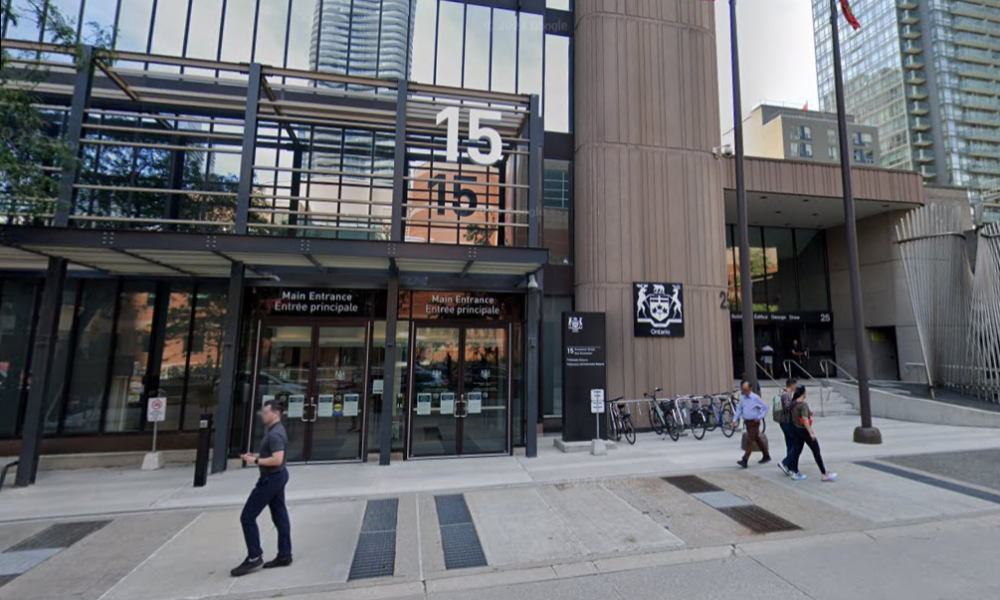Group says HRTO 'place where human rights claims go to die'

The Human Rights Tribunal of Ontario (HRTO) seems to be going to the extreme end of the legal maxim “justice delayed is justice denied,” according to a public interest organization.
In the 2023-24 period, the HRTO dismissed 1,344 cases for procedural reasons without a hearing, doubling the 610 dismissals recorded in 2017-18, reports Tribunal Watch Ontario.
That equates to 93% of HRTO’s dismissals of claims without a hearing, and in 80% of these cases, applicants were determined to have “abandoned” their claims after prolonged delays and complex filing requirements.
“The tribunal has become the place where human rights claims go to die,” says Tribunal Watch Ontario.
The trigger for dismissal is the HRTO re-activating the case by sending a Notice of Intent to Dismiss or other notice requiring the applicant to file new written submission on the legal and factual basis for the claim. In a typical case, a self-represented applicant is then deemed to have abandoned their claim after failing to file a written response within the time allowed, explains the group.
“The HRTO’s own numbers establish that when a tribunal fails to effectively move applications towards resolution, it can count on a significant number of applicants giving up. This is particularly true when most applicants have no legal representation,” says the group.
HRTO claims can take years
Also, roughly 80% of applicants at the HRTO are not represented by counsel when they file their applications.
“The human rights process was designed to be accessible to self-represented applicants, with a comprehensive application form that allowed the applicant to ‘tell their story’ in their own words.
“Yet, since moving under Tribunals Ontario in 2019, the HRTO has made its process less accessible for self-represented applicants, as well as more expensive for an applicant who can afford to hire a lawyer,” says Tribunal Watch Ontario.
A worker’s allegation that her former employer failed to accommodate her and that her dismissal was a reprisal failed because she never disclosed a disability to her employer, the HRTO previously ruled.
For those who do make it to a hearing, the process can take years. Among the 40 cases that received a substantive decision in 2023-24, all but two were filed between 2014 and 2020, says the group.
And there have also been a lot of cases of lost recordings: In 2023-24, only four in-person “hearing events” were recorded, compared to 1,342 virtual hearings conducted by video or phone.
The number of new applications has also dropped. The HRTO received an average of 3,621 new cases annually over the past three years, compared to 4,449 in previous years—a cumulative decline of nearly 2,500 applications, says Tribunal Watch Ontario.
Meanwhile, abandonment rates have surged. In 2023-24, a record 1,083 applications were dismissed as abandoned, nearly tripling from 374 in 2017-18.
Group cites errors by human rights tribunal
Compounding these issues are errors in file handling by the HRTO itself, says Tribunal Watch Ontario. In 2023-24, 29 out of 39 successful reconsideration applications were granted due to administrative errors, mostly stemming from the HRTO’s failure to upload applicant-submitted documents.
In the first quarter of 2024-25 alone, 11 out of 13 positive reconsiderations involved similar administrative mistakes.
Tribunal Watch Ontario questions the extent to which dismissals based on "abandonment" may be the result of internal mismanagement.
“There is something deeply wrong at a human rights tribunal when its backlog has increased twofold over time, despite a significant drop in incoming cases; when 93% of final decisions are no-hearing dismissals, mostly of aging cases in a multiyear backlog; when the great majority of those dismissals are because the applicant has given up after long periods of HRTO inactivity on their file; and when only 2.7% of all final decisions are substantive decisions after full consideration of the evidence of the parties.”
The group asks: “When will the Ontario government take effective steps to address the access to justice crisis at the Human Rights Tribunal?”
A recent case before the HRTO should be helpful for employers and HR in confirming their responsibilities when it comes to investigating workplace harassment allegations, according to a previous Canadian HR Reporter report.




